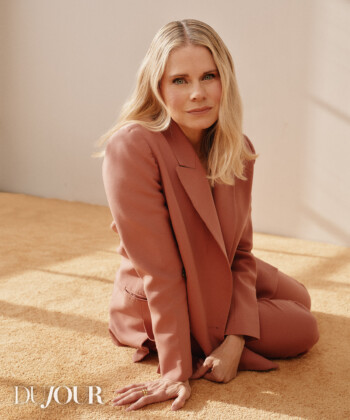“Have you ever sat in a boring meeting?” Bill Hoogterp asks. Obviously, the answer’s yes, which is why the author of Your Perfect Presentation has built a career on coaching some of the world’s most visible speakers—athletes, actors, CEOs, media execs, anyone charged with a crucial public speaking gig. “When you talk,” Hoogterp says, “own the room. Don’t rent the room, baby! Own it.”
There are a million things you can do with the spotlight to get your message across, but you can’t do any of them unless you have it, according to Hoogterp. Below, he speaks with DuJour about nailing your next moment in the spotlight.
What’s the biggest mistake people make while giving a presentation?
Being too focused on yourself. We tell everybody that getting over yourself is the secret to unlocking your magic because it’s always about the content and the audience. When you focus on yourself, you actually break any connection you have with your audience and lose the effect you want to have.
What makes people like Facebook’s Sheryl Sandberg and Reid Hoffman, the founder of LinkedIn, good public presenters?
Sheryl Sandberg has very high standards for everything she says and does. She won’t use any story or example that isn’t backed up with real data. Both she and Reid Hoffman are always out speaking in different formats—big groups, small groups, TV, meetings—and they already have such a natural intelligence, but they understand that all of us are learners, and we can learn from each other.
What’s your most valuable tip for a successful presentation?
Be different every time. Be different than everybody else. Be memorable. The Bill Gates millennial speech was so famous because he actually had mosquitos in a jar on the lectern. That’s different. So [use] a prop. When you start with something unusual it gets people’s attention.
What have you learned about high-powered CEOs and business people from working with them on the day to day?
They have the same hopes and insecurities as everybody else. They want to do a great job. They get a little nervous, so there really isn’t that much difference between someone who is junior and someone who is senior. It’s really just in our minds.









































